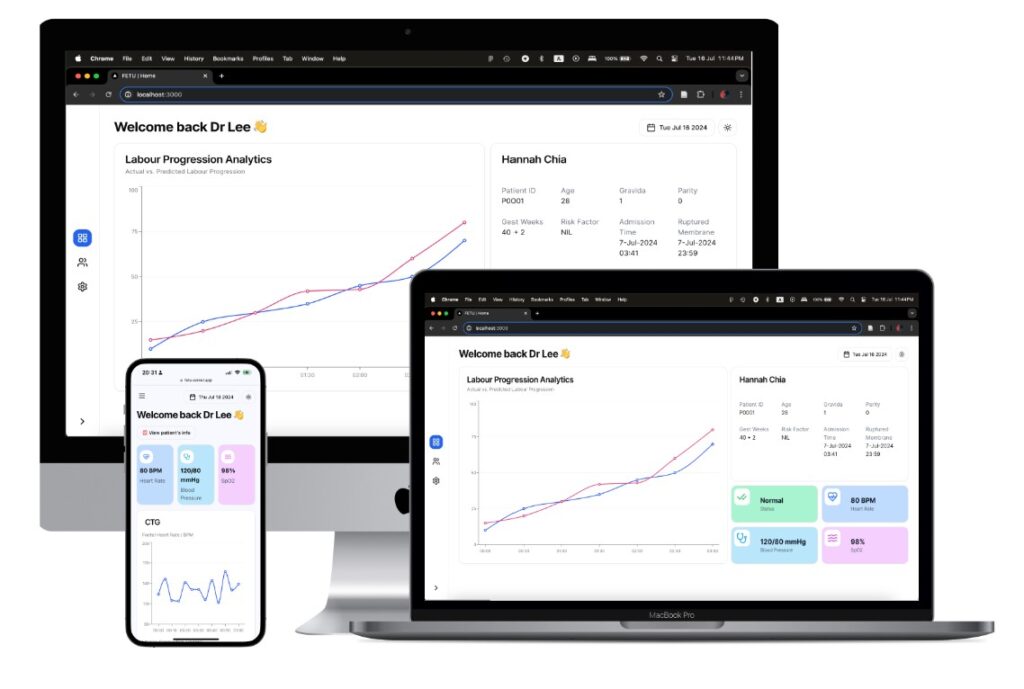MaternAI: clinical decision support system
Labour dystocia is defined as slow or abnormal labour, where the mother takes a longer period of time to deliver the foetus via natural birth. Labour dystocia increases the chance of complications, such as maternal infections and foetal distress, during births, necessitating clinical interventions.
While normal labour progression differs largely among patients, there is presently no way to define labour dystocia in an objective, clinically-proven manner. Clinicians have to make subjective judgement based on their professional experience, which may lead to an incorrect conclusion that a patient cannot undergo vaginal birth and hence must undergo caesarean sections.
To address this problem, we have developed MaternAI which a hybrid knowledge-based clinical decision support system to aid clinicians in antenatal care where mode of delivery predictions are highly important for a patient's birth planning. We conducted a pilot testing with a preliminary dataset and the results show that MaternAI achieves the expected accuracy for acceptance by clinicians and performs better than some demographics of clinicians.


Project Team
Students:
- Ann Lee Shyann Wai (Biomedical Engineering, Class of 2026)
- Low Cheng Xun Brien (Biomedical Engineering, Class of 2026)
- Low Tse Han (Electrical Engineering, Class of 2027)
- Sim Rong Zhi (Biomedical Engineering, Class of 2026)
- Yan Weidong (Computer Science, Class of 2026)
Supervisors:
- Dr Mark Chong (markchong@nus.edu.sg)
- Dr Tang Kok Zuea (kz.tang@nus.edu.sg)

